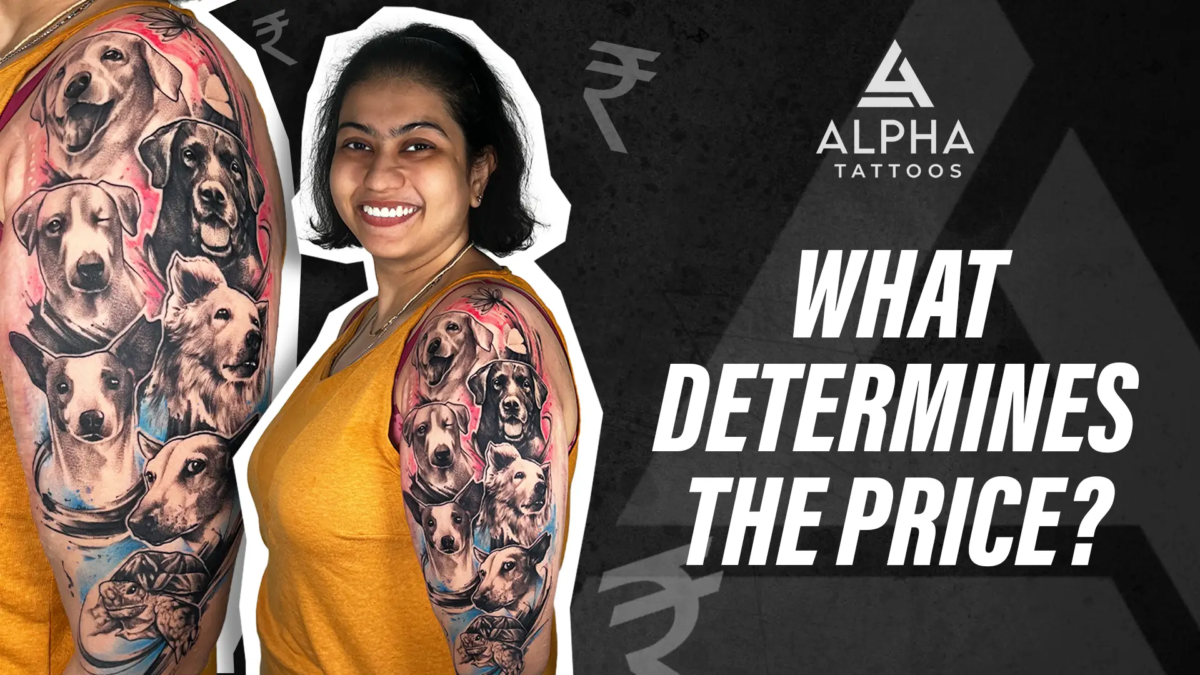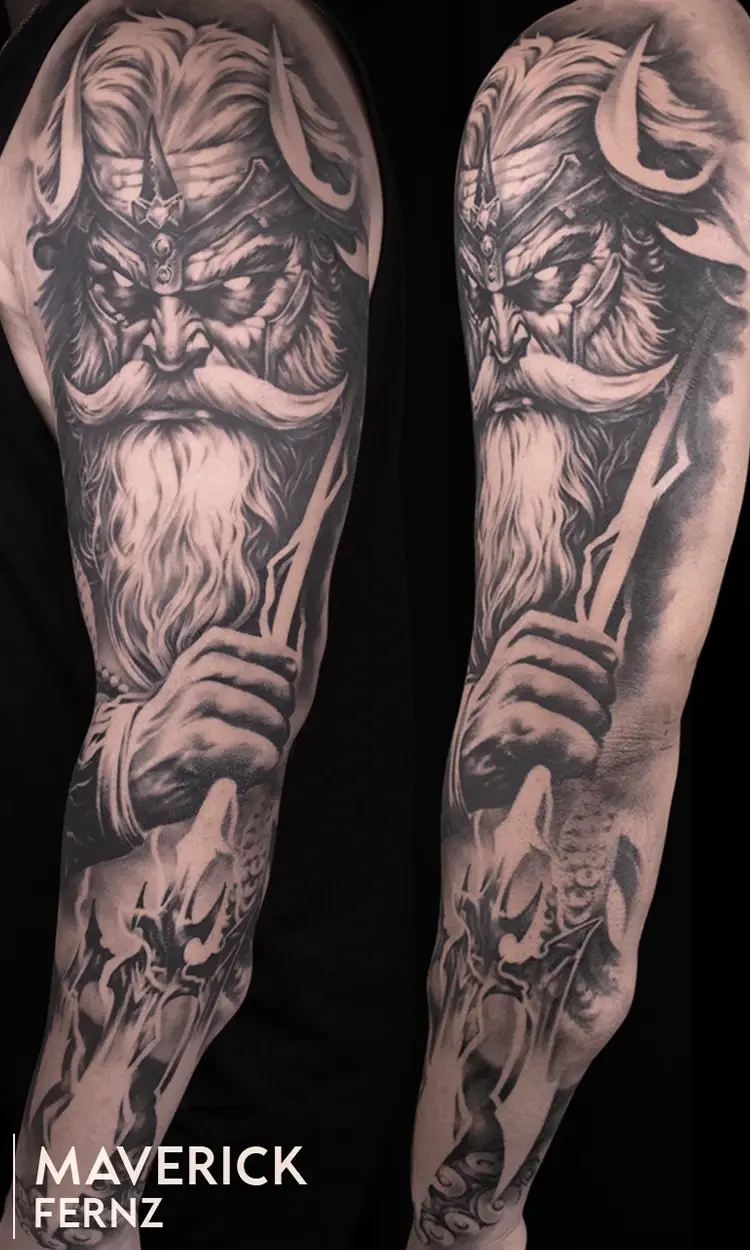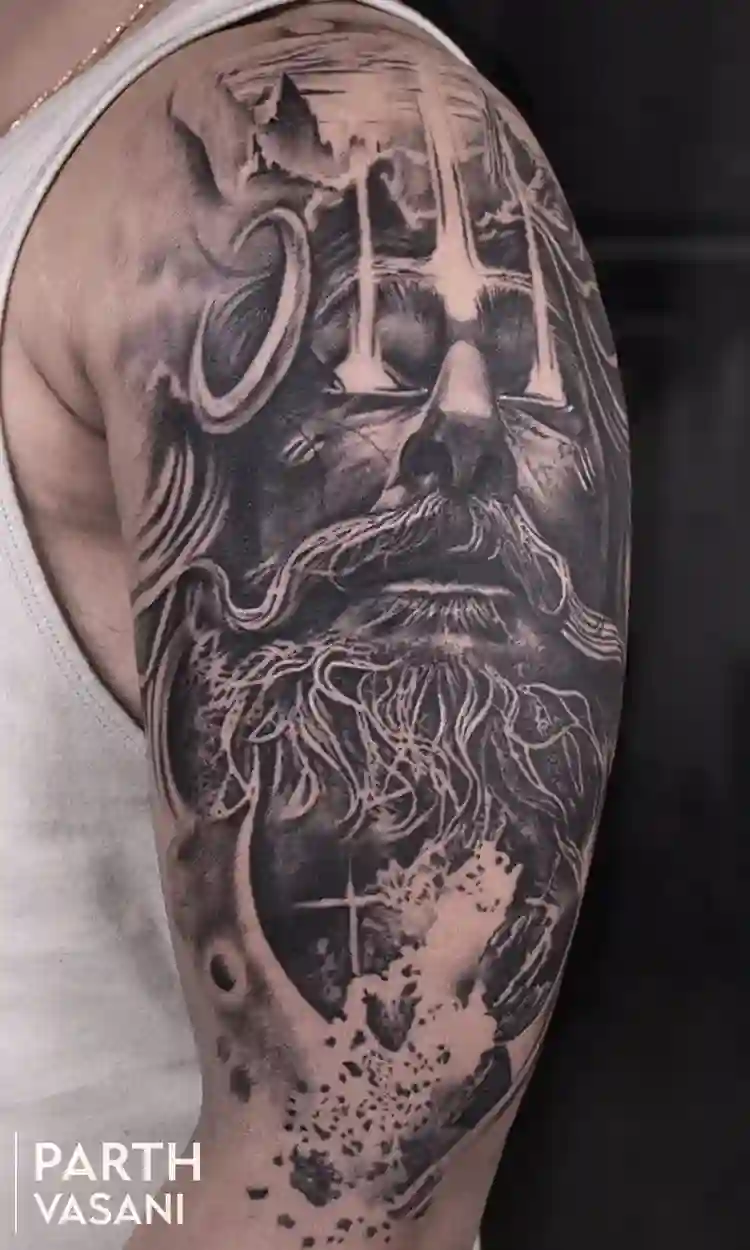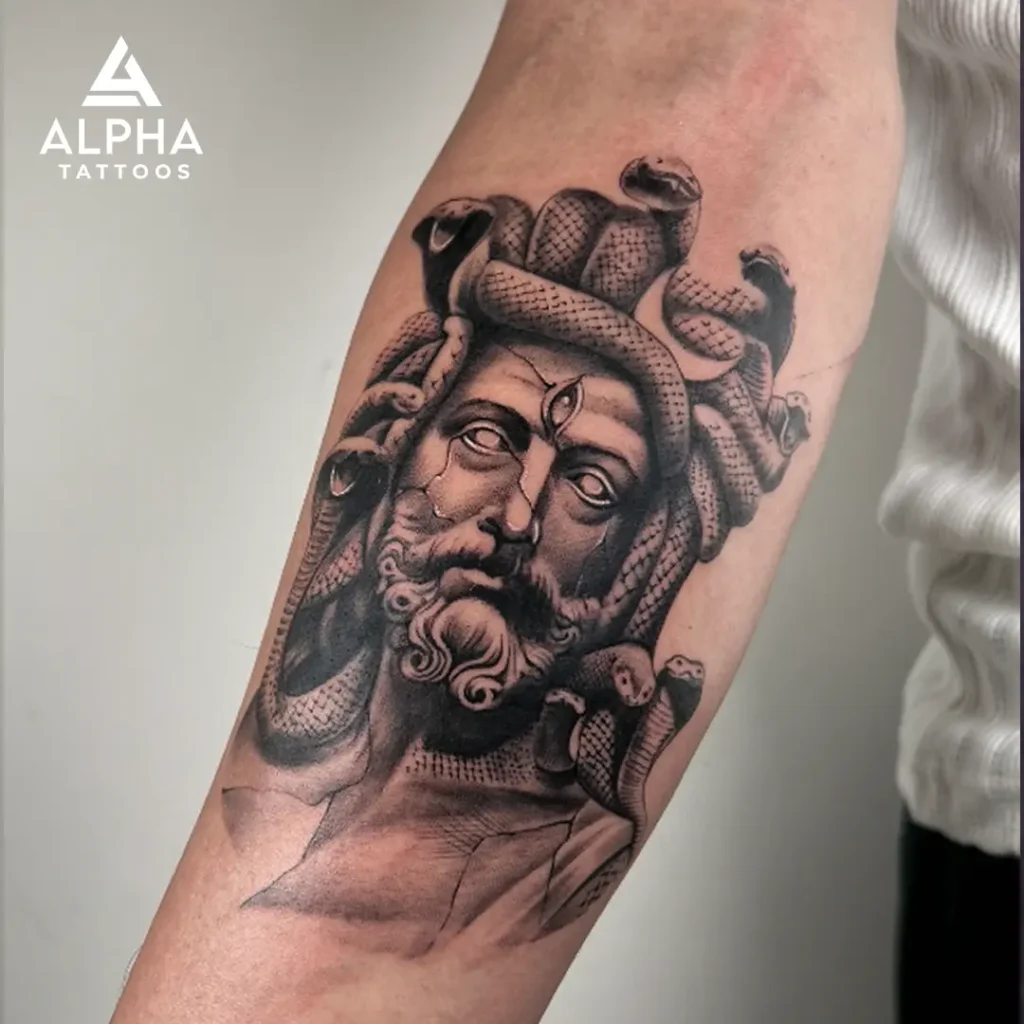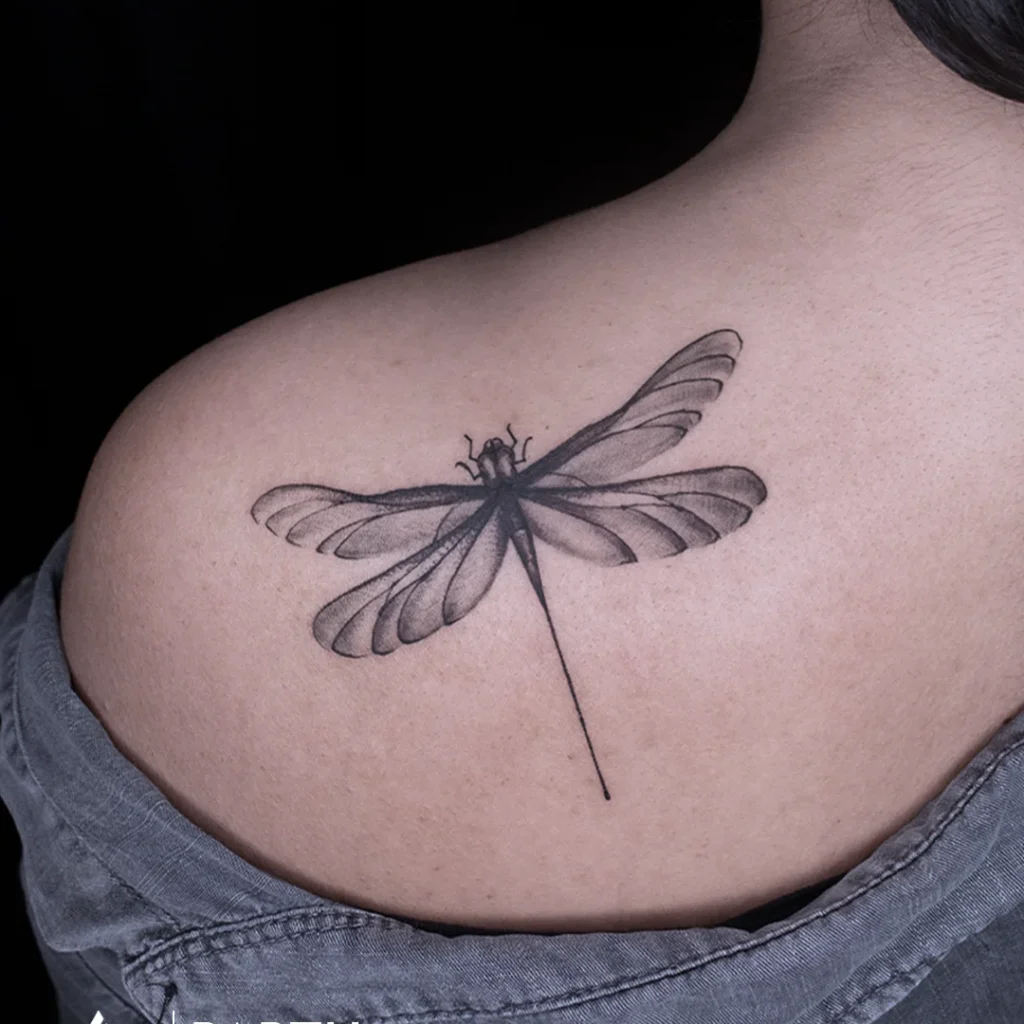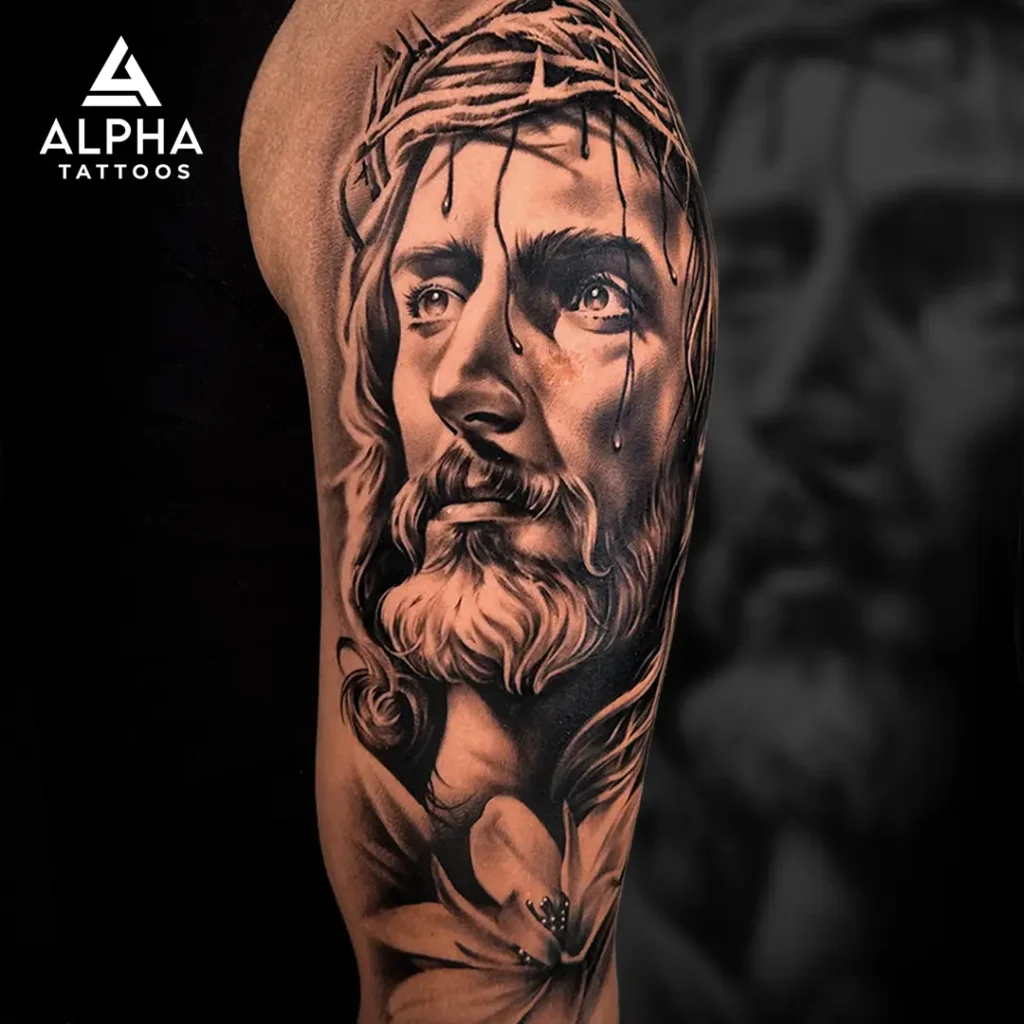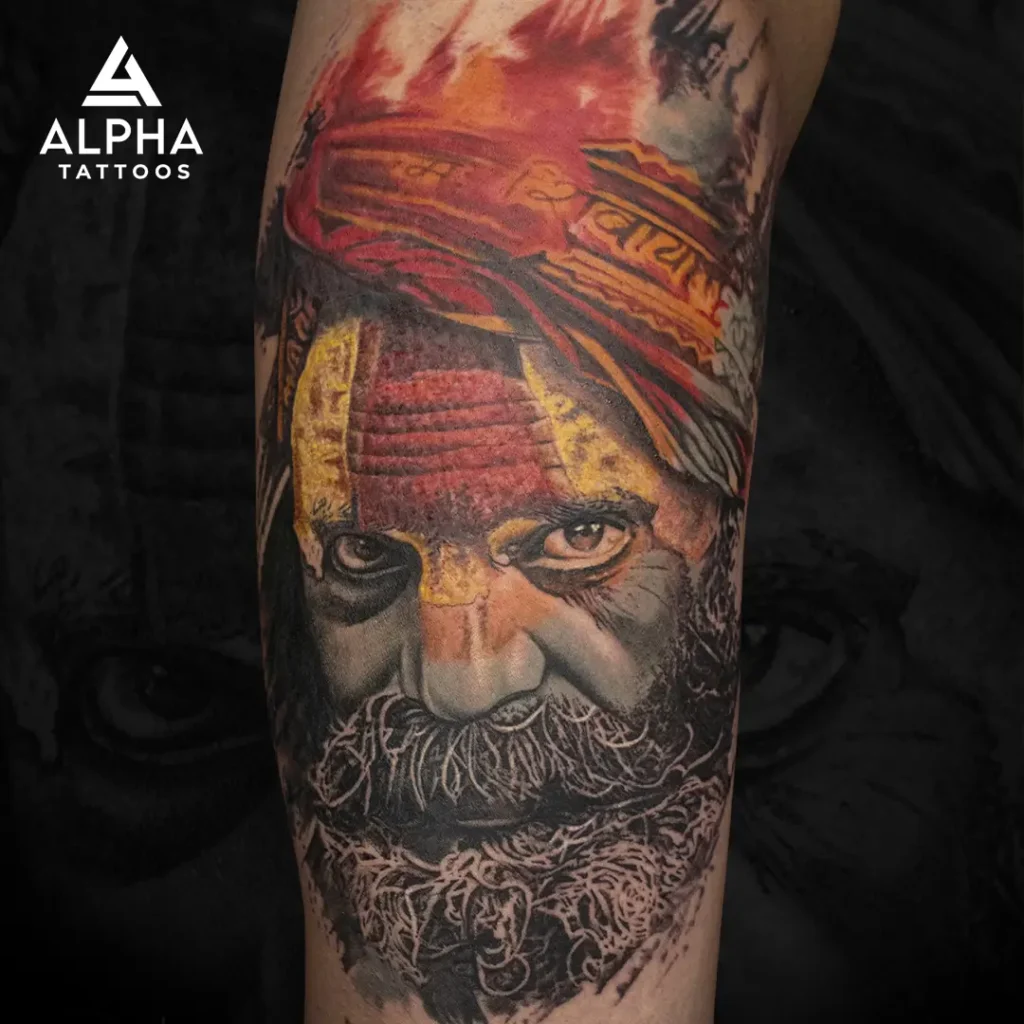Table of Contents
Introduction
More than just ink on the flesh; tattoos are works of art, permanent embellishments, and a means of self-expression for a great number of people. if you’ve ever thought about getting a tattoo, probably one of the first things that comes to mind is , “How much will it cost?” A tattoo price can vary greatly depending on a number of things. We’ll explain what factors affect tattoo price in this blog post, and you should keep those factors in mind when you’re designing your next body art.
Size and Complexity of the Tattoo
Size
One of the easiest things to determine tattoo price is the tattoo’s size. Larger tattoos are obviously more expensive because they require more ink, time, and work. Generally, tattoo studio bill either by the hour or by the piece; larger designs may require several sessions to finish.
Complexity
Complexity is yet another important component. Basic forms and little symbols are examples of simple designs with little intricacy that are typically quicker and easier to execute, which results in lower expenses. On the other hand, complex designs with fine lines, gradients, and shading call for more time and work, which adds up the tattoo price.
Location on the Body
It’s harder to tattoo some parts of the body than others. For instance, tattoos on bony or uneven areas, like the hands, feet, or ribs, can be more uncomfortable and need more precision, which could lead to more expenses. The cost may also increase because to some areas that are more difficult for the tattoo artist to access and may need for specialized methods.
Artist’s Experience and Reputation
Pricing is heavily influenced by the tattoo artist’s reputation and degree of talent. Well-known and seasoned artists frequently charge extra for their services. They can offer premium, personalized designs because they have spent years honing their skill. Despite the allure of going with a less skilled, less expensive artist, hiring a reputable professional can guarantee better results and lower the likelihood that you’ll require cover-ups or repairs later on.
Tattoo Shop Location
The location of the tattoo shop itself can also influence the price. Shops in major cities or trendy neighbourhoods tend to charge more due to higher operating costs, such as rent and utilities. Conversely, tattoo parlours in smaller towns or less popular areas may offer more competitive pricing.
Custom Designs vs. Flash Tattoos
Generally speaking, flash tattoos—pre-designed pieces that are on show at the shop—are less expensive than custom-designed tattoos. Custom designs need more time for the artist to create a one-of-a-kind piece, several revisions, and a session to go over your ideas. Conversely, flash tattoos are less expensive since they are pre-made designs that take less time to create.
Color vs. Black and Grey
A tattoo’s color scheme may also affect how much it costs. To achieve the intended outcome, color tattoos frequently require numerous hues and layers, which adds to the time and expense. Even though they still need talent and technique, black and grey tattoos can be less expensive and take less time to create.
Additional Costs
Touch-ups
After the first healing phase, many tattoos need touch-ups to keep the design vivid and intact. While some painters charge extra for this service, others include one touch-up in the original pricing. It’s crucial to discuss this in advance with your artist.
Aftercare Products
The healing process and tattoo lifespan depend greatly on proper aftercare. Some stores include aftercare products in their services; others could charge extra. These goods include specific creams, lotions, and bandages made to preserve your freshly applied tattoo.
FAQ’s
Q1. How is the price of a tattoo determined?
A. The price of a tattoo is determined by several factors, including the size and complexity of the design, the location on the body, the artist’s experience and reputation, the location of the tattoo shop, whether the design is custom or flash, and whether the tattoo is in color or black and grey.
Q2. Why are larger tattoos more expensive?
A. Larger tattoos are more expensive because they require more ink, time, and effort to complete. They often require multiple sessions to finish, especially if they are highly detailed.
Q3. How does the complexity of the tattoo affect the price?
A. Complex designs with intricate details, fine lines, gradients, and shading require more time and skill to execute, which increases the overall cost of the tattoo.
Q4. Is it worth paying more for an experienced tattoo artist?
A. Yes, paying more for an experienced and reputable tattoo artist can ensure better results, reduce the risk of complications, and decrease the likelihood of needing future cover-ups or repairs. A high-quality tattoo is a long-term investment in art that you’ll wear for a lifetime.
Q5. Are touch-ups included in the initial price of a tattoo?
A. It depends on the artist and the shop. Some artists include one touch-up in the original price, while others may charge extra for touch-up sessions. It’s important to discuss this with your artist beforehand.
Conclusion
Knowing what influences tattoo price will help you plan your budget and make wise selections when it comes to getting inked. The unique designs, color scheme, size, intricacy, placement on the body, experience of the artist, shop location, and other factors all affect the final cost. You can make sure that you have a stunning, long-lasting tattoo that meets your vision and your budget by taking these factors into account and being open and honest with your chosen artist.
Recall that although cost plays a significant role, the security and quality of your tattoo should always come first. You’ll end up with a work of art you can be pleased to wear for a lifetime if you make the long-term investment in a respectable artist and appropriate aftercare.


